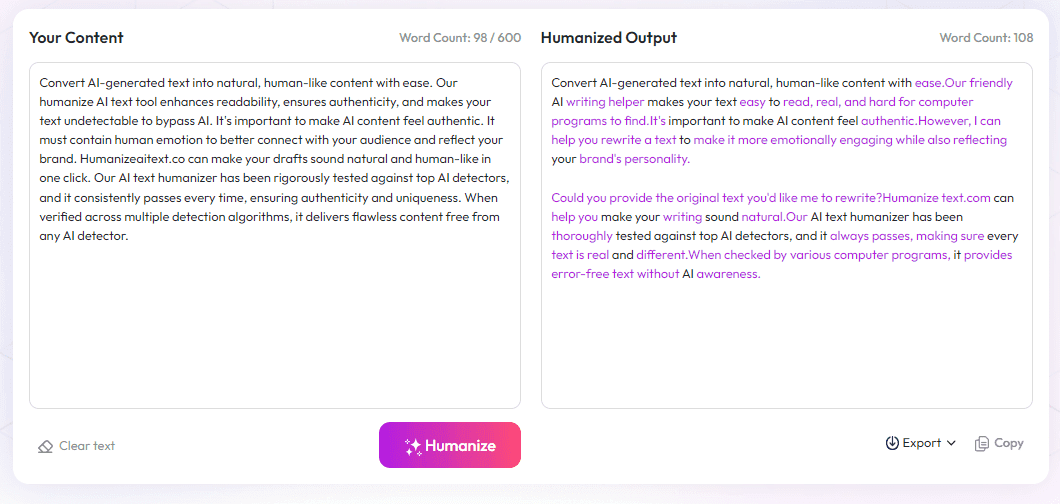Table of Contents
Struggling to find enough time to write can be a real headache for authors. You might feel like your ideas are piling up while your schedule is too crowded to keep up. But don’t worry, if you stick around, I’ll show you simple steps to get better at managing your writing time. With a few tweaks, you'll be able to write more consistently and feel less overwhelmed.
In this quick guide, I’ll walk you through practical tips like setting priorities, blocking out time, and staying focused. These tools are easy to start using right away, so you can build a routine that works for you. Ready to turn your writing chaos into a smooth process? Let’s dive in and make time your ally.
Key Takeaways
Key Takeaways
- Set clear goals and break them into smaller tasks to stay focused and motivated. Use tools like the Eisenhower Matrix to prioritize your work. Organize your day around your most productive hours and stick to specific writing times. Limit online distractions with website blockers and turn off notifications during your writing sessions. Find a quiet space and inform others about your schedule to avoid interruptions.
- Track your writing time and progress with apps like Trello or Notion to stay accountable. Use techniques like the Pomodoro Method—working in focused intervals with breaks—to keep your energy up. Regularly review and adjust your routine based on what works best. Prioritize breaks, sleep, and good nutrition to boost focus and creativity. Celebrate small wins to stay motivated and reward yourself for milestones achieved.
- Use technology such as focus timers and digital calendars to organize your tasks and stay on track. Prepare backup plans for disruptions like tech issues or emergencies. Find inspiration by trying new prompts, genres, or changing your environment. These steps help create a steady, productive writing habit and make managing your time easier and less stressful.

Many authors underestimate how much their own time can slip away when they don't have a solid system in place. In fact, studies show that 82% of people rely on basic tools like to-do lists or tackle tasks as they come, which can lead to constant distractions and procrastination. For writers, this often results in only around 2 hours and 53 minutes of actual productive work each day, largely because of interruptions and online temptations.
Effective time management begins with setting clear, achievable goals. Break them down into short-term (finishing a chapter) and long-term (completing the manuscript) targets. Knowing exactly what you want to accomplish helps you prioritize your daily tasks and stay motivated. Use a system like the Eisenhower Matrix to categorize your tasks into urgent-important, non-urgent-important, urgent-not important, and neither urgent nor important. This way, you focus on what truly moves your writing forward.
Organizing your schedule around your most productive hours makes a big difference. Many successful authors plan their writing sessions during their peak energy times—whether that’s early mornings or late nights. Allocate specific blocks of time solely for writing, and stick to these slots as if they’re appointments you can’t miss. Using tools like calendars or digital planners ensures these slots become a non-negotiable part of your routine. Building a consistent schedule not only helps in making writing a habit but also sends a message to your brain that your creative time is sacred.
To avoid falling into the trap of constant distraction, consider tracking how you spend your online hours. The average person spends about 6.5 hours online daily, much of which is spent on social media, browsing, or other non-productive activities. Setting boundaries, such as specific "tech-free" writing periods or using website blockers, can help keep you focused. For example, turning off notifications during your writing blocks can make a noticeable difference in your productivity.
Having a dedicated environment for writing can minimize interruptions. Whether it’s a cozy corner at home or a local library, a space with minimal distractions helps your mind associate that area with work. Also, inform family or roommates about your scheduled writing time to reduce unexpected visits or interruptions. For digital distractions, consider using tools like auto-crit or website blockers that limit your online distractions during your productive periods.
Another way to boost your time management is by tracking your progress and deadlines with task management tools. Apps like Trello, Asana, or Notion let you break down your project into smaller tasks, set deadlines, and check off completed work. This visual overview keeps you accountable and helps prevent last-minute rushes. Setting milestones offers a sense of achievement and keeps your motivation high, especially when juggling multiple projects or drafts.
Procrastination is a common enemy for many writers, with over 75% struggling to start or finish their projects. Incorporate techniques like the Pomodoro Technique—working in focused 25-minute intervals followed by a 5-minute break—to maintain momentum. During these intervals, focus solely on your writing, steering clear of social media or email. This method not only boosts concentration but also helps you measure how much time you actually dedicate to your craft.
In addition, finding your most productive times of day can help you write more consistently. Some authors find that early mornings spark their creativity, while others hit their stride after dinner. Pay attention to when you feel most alert and creative, then schedule your writing sessions during those windows. Over time, this consistency builds habits that turn writing into an ingrained part of your daily life.

Step 9: Batch Your Tasks to Save Time and Energy
Instead of switching between different types of tasks, group similar ones to work more efficiently.
For example, set aside specific blocks for research, editing, or replying to emails so you don’t waste mental energy switching gears.
Batching tasks helps reduce the mental friction of constantly changing focus and keeps you in a flow state longer.
Step 10: Establish Boundaries to Protect Your Writing Time
Learning to say no to interruptions and social invitations during your scheduled writing periods is crucial.
Communicate your dedicated writing hours to family and friends so they understand when you shouldn't be disturbed.
Using physical signals like a closed door or headphones can also cue others to respect your focus time.
Step 11: Use Deadlines to Push Yourself Forward
Set realistic deadlines, even for tasks that aren’t externally imposed, to keep yourself motivated.
This creates a sense of urgency that can spur you into action instead of letting procrastination take over.
Work backwards from your ultimate goal to break it into shorter, deadline-driven milestones that are easier to manage.
Step 12: Reflect and Adjust Your Schedule Regularly
Take time weekly or monthly to review what’s working and what’s not in your routine.
Are certain times of day more productive for you? Are some tasks better delegated or eliminated?
Adjust your schedule accordingly to fine-tune your habits and stay aligned with your goals.
Step 13: Prioritize Self-Care and Breaks
It might sound counterintuitive, but taking regular breaks actually improves your writing output in the long run.
Short walks, stretching, or just stepping away from your desk can refresh your mind and prevent burnout.
Ensure you're getting enough sleep, eating well, and staying hydrated—these are vital for maintaining focus and creativity.
Step 14: Reward Yourself for Achievements
Celebrating small wins along the way keeps motivation high and makes the process more enjoyable.
For example, after completing a chapter or reaching a milestone, treat yourself to something fun or relaxing.
This positive reinforcement encourages consistent effort and helps build a sustainable writing routine.
Step 15: Leverage Technology to Stay Organized and Focused
Use apps and tools that help you minimize distractions, such as website blockers or focus timers.
Digital calendars with reminders can keep you on track, and writing apps like the best word processors for authors offer features tailored for productivity.
Automating routine tasks or setting up templates in your writing software can save you time and eliminate repetitive work.
Step 16: Keep a Log of Your Time and Progress
Track how much time you actually spend writing versus other activities to identify patterns.
This data helps you see if you're sticking to your schedule or if adjustments are needed.
Many authors find that simply recording their daily output keeps them accountable and inspires consistency.
Step 17: Create a Backup Plan for Disruptions
Have backup strategies ready for when unexpected issues arise, like technical problems or personal emergencies.
This might mean having portable drafts on cloud storage or alternative writing locations.
Being prepared ensures your progress won’t stall when life throws a curveball.
Step 18: Find Inspiration to Stay Engaged
Mix up your routine with prompts, new genres, or visiting inspiring places to keep your passion alive.
Sometimes, a fresh perspective can reignite your motivation and creativity when you're feeling stuck.
Seeking out new ideas, such as winter writing prompts, can give your writing a boost.
FAQs
Start by listing your tasks, then identify urgent and important items. Set specific goals for each day and assign priorities to stay focused on high-impact activities that align with your objectives.
Create a dedicated workspace, turn off notifications, and set specific time windows for focused work. Eliminating interruptions helps you stay concentrated on your tasks.
Task management apps like Trello, Asana, or Todoist are useful for tracking deadlines and progress. They help you organize work, set reminders, and monitor your achievement over time.



